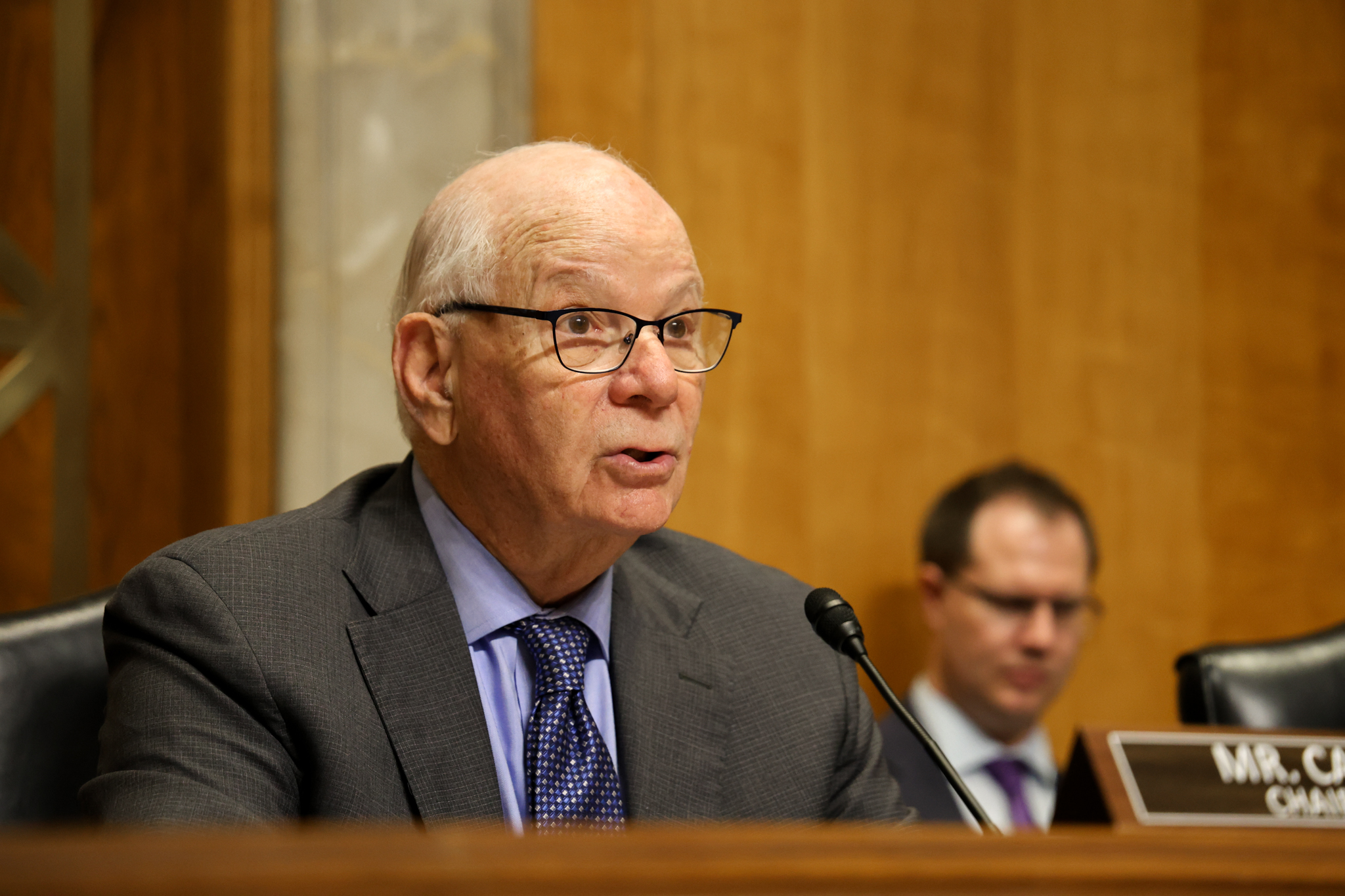Chair Cardin Opening Remarks at Hearing on State Department Management and Modernization
WASHINGTON – Today, U.S. Senator Ben Cardin (D-Md.), Chair of the Senate Foreign Relations Committee, delivered an opening statement at the full Committee hearing, “Modernization and Management: Building a Department to Address 21st Century Challenges.” In his remarks, Chair Cardin stressed that the United States must continue to adequately resource and invest in the State Department to ensure its workforce reflects the diversity and values of our nation.
“Our diplomats are on the front line of advancing the values of our foreign policy,” said Chair Cardin. “They work with indigenous communities defending the environment in Brazil; they partner with African leaders on democracy and good governance; they battle corruption and stand up for human rights. To succeed, we need them working in state-of-the-art buildings, both at home and abroad. We need to support foreign service careers that also have to be concerned about their families... And, we need leadership that can make tradeoffs to match our resources with our policy priorities.”
WATCH THE CHAIR'S OPENING REMARKS HERE
More information about the hearing is available HERE.
A copy of the Chair’s remarks, as delivered, have been provided below.
We welcome Deputy Secretary Verma to the Committee. It’s nice to have you here. This hearing will focus on the State Department and the modernization efforts at the State Department. 100 years ago, Congress passed the Rogers Act, laying the foundation for today’s Foreign Service. As we commemorate this anniversary, we should also reflect as to how much has changed over the years. In 1924, American diplomats communicating with Washington did not have cellphones, traveling to embassies in Europe took days, and the Department only had 1,300 employees.
Well, today’s workforce includes over 75,000 dedicated employees worldwide, it’s a far more diverse workforce. Email and smartphones have replaced telegrams and typewriters, and when crisis erupts, our diplomats can adapt and make decisions using real-time information. Whether it is AI or the spread of infectious diseases, climate change, or strategic competition with our adversaries, in the 21st Century, diplomacy has never been more important.
Our diplomats are on the front line of advancing the values of our foreign policy. They work with indigenous communities defending the environment in Brazil; they partner with African leaders on democracy and good governance; they battle corruption and stand up for human rights. To succeed, we need them working in state-of-the-art buildings, both at home and abroad. We need to support foreign service careers that also have to be concerned about their families, their spouses, their partners, and children. And, we need leadership that can make tradeoffs to match our resources with our policy priorities.
I applaud the Administration’s recent guidance on merit system principles that protect our civil service. Secretary Verma, I want to welcome you today and thank you for your work—the work you’re doing in the department—including your travel to support our workforce in key posts in China, Brazil, India, and Ethiopia. As you know, I support an ambitious modernization effort at the Department of State. When I was active as Chair of the Subcommittee on the State Department, working with Senator Hagerty, we held hearings and made many recommendations, many of which were incorporated in legislation that was passed by the Congress. I’m pleased to see initiatives we supported in recent State Authorization bills realized—like the establishment of the Provost and Board of Visitors at the Foreign Service Institute, and I look forward to hearing about where we are on a reserve corps. We need to support training and professional development for our diplomats so they have the tools they need to tackle the complex challenges of the 21st century. I’m also pleased to hear you are developing the training courses on multilateral institutions, so that the United States is leading in these critical fronts; and that you are launching applications for the mid-career mentorship program.
But I believe there is more progress that needs to be made. We need to invest in our diplomats’ skillsets—from digital diplomacy and economic statecraft, to crisis management, to language proficiency and cultural understanding. Our diplomats need the knowledge and expertise to succeed in their mission. We also need to address the staff shortages that have a particularly large impact at hardship posts and mid-level positions. When our diplomatic missions are not adequately staffed, it hurts the mission and morale. That is why I support the President’s budget request to continue hiring at increased rates and incentivizing service in hardship posts. We also need to offer career advancement opportunities to attract and retain top talent. I look forward to the results of the Department’s new lateral entry program for mid-levels employees. I applaud the Administration’s efforts to advance diversity and equity, including the appointment of the Department’s second Chief Diversity Officer and implementing Equity Action Plans.
Whether our diplomats come from Baltimore or Boise, our diversity, equity, inclusion, and accessibility policies mean they will serve with integrity and authenticity abroad. Our diplomats must reflect the diversity of our nation and they must understand the global community and have a better root in the needs that we have around the world. That means a more diverse workforce. As Congress did a century ago with the Rogers Act, today we also have an essential role to play in the Department’s modernization efforts. For the last three years now, we have passed into law State Department Authorization bills. I want to thank Senator Risch for his cooperation as we developed, in a bipartisan way, reauthorization bills now in three Congresses. We look forward to doing the same again this year, which gives us an opportunity to advance the priorities of this Committee to help you in regards to those modernization efforts. Coming back to this hearing, we hope this hearing will help us in sorting out what we can do to help you in your efforts to modernize the State Department.
###
